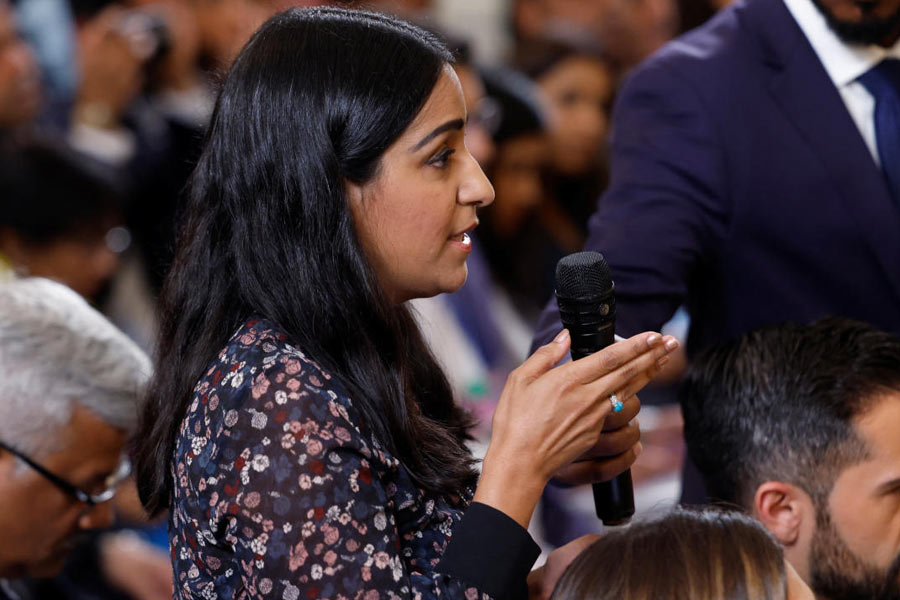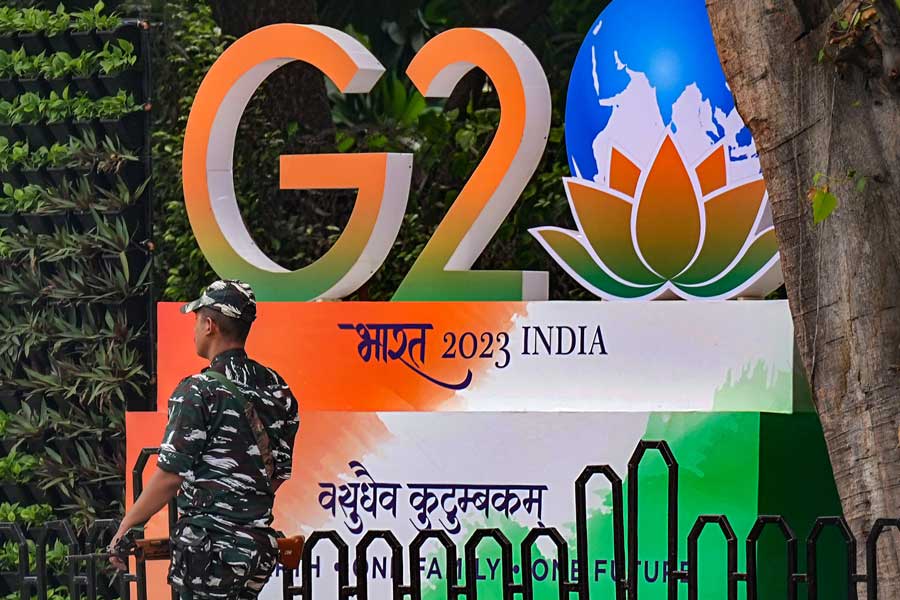The White House on Thursday said top officials of the Joe Biden administration were doing their “darndest” and “best” to try and ensure media access during the US President’s meeting with Prime Minister Narendra Modi on Friday night ahead of the G20 summit.
The multiple interventions had failed to secure media access by the time Biden and the media left Washington. The Biden administration maintained that this was not unusual for such multilateral meetings where schedules were tight.
White House reporters had pressed for a “pool spray” where they ask questions to the President and whichever head of state or government he is meeting.
Grilled by the media travelling with Biden on Air Force One to New Delhi on why they would have little or no access to Biden’s meeting with Modi or opportunity for a media interaction in India, White House press secretary Karine Jean-Pierre said: “We know how important it is for all of you to cover what the President is doing, especially abroad, and so we are — we are doing our darndest, doing our best to do everything that we can to get you access.”
Jean-Pierre had earlier listed the various levels at which the administration had tried to secure media access, given that not even a pool spray was being allowed for Biden’s meeting with Modi at his residence.
“Ben LaBolt, the White House communications director, reached out to his counterpart. Jake Sullivan, who is — as you know, you just heard from him — our national security adviser, reached out to his counterpart as well,” Jean-Pierre said.
Besides, deputy national security adviser Jon Finer and the deputy assistant to the President and coordinator for the Indo-Pacific, Kurt Campbell, had reached out to their opposite numbers, she said, adding that the G20 Sherpa team had pressed its counterpart.
“State mobilised our ambassador and our embassy. This was a days-long process that we have engaged in, and we will continue to engage, you know, while we are there,” Jean-Pierre said.
Sullivan pointed out that the Modi-Biden meeting would take place at the Prime Minister’s residence. The meeting took place on Friday evening.
“So, it is unusual in that respect. This is not your typical bilateral visit to India with meetings taking place in the Prime Minister’s office and an entire programme. This is the host of the G20 hosting a significant number of leaders, doing so in his home, and he has set out the protocols he’s set out,” he said.
Given how the US had insisted on a Biden-Modi media conference after their bilateral in June during the Prime Minister’s state visit to Washington, Sullivan was careful to downplay the absence of media access during this visit. He maintained that this was a circumstance-based issue, not some larger issue.
“You’ve had access to bilaterals between the two. They’ve had press conferences, including the unusual circumstance of a press conference in which Prime Minister Modi took questions,” Sullivan said.
Stating that the US government takes media access “extremely seriously”, the NSA added: “At the end of the day, we will have to kind of work through the parameters and protocols of these meetings in coordination and consultation with the host and, in particular, with the host at his personal residence.”
During Modi’s US visit in June, the White House had insisted that he field questions from the media along with Biden instead of just reading out his statement. The Indian side eventually gave in and Modi did field two questions — one each from either side — in a rare break from his usual practice of not answering media queries.
Wall Street Journal reporter Sabrina Siddiqui had then asked: “Mr Prime Minister, India has long prided itself as the world’s largest democracy, but there are many human rights groups who say that your government has discriminated against religious minorities and sought to silence its critics. As you stand here in the East Room of the White House, where so many world leaders have made commitments to protecting democracy, what steps are you and your government willing to take to improve the rights of Muslims and other minorities in your country and to uphold free speech?”
Modi categorically denied any discrimination in India. The Prime Minister did not give a direct answer to the second part of the question.
After this media conference, the journalist was trolled by the Right-wing ecosystem in India. Following this, the White House condemned the online harassment of Siddiqui.












